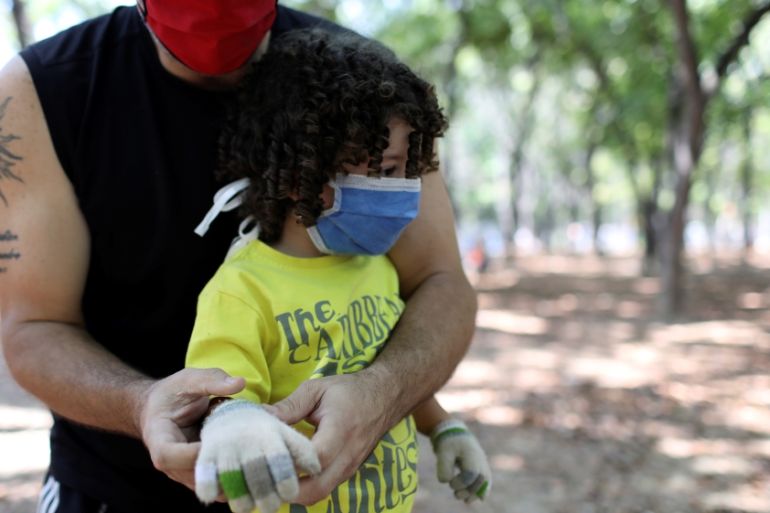Venezuela risks stoking pandemic with Amazon mining say activists
Environmental groups condemn President Maduro’s decision to lift a ban on gold and diamond mining in Amazon rivers.

Venezuela’s move to allow gold and diamond mining in six rivers in its Amazon region may worsen the environmental damage from a state-backed mining effort while also fuelling the spread of the coronavirus, according to activists and legislators.
Venezuelan President Nicolas Maduro’s government this month lifted the long-standing prohibition on mining in the rivers, with the opposition-controlled National Assembly condemning the decree last week.
Keep reading
list of 3 itemsVenezuela petrol crisis worsens as US orders supply cuts
‘Nothing left’: Venezuelans head home amid coronavirus pandemic
Though such mining is already taking place illegally, critics said lifting the ban will encourage wildcat mines that for years have been a hotbed of infectious diseases just as the country is seeking to keep COVID-19 – the respiratory illness caused by the coronavirus – from spreading.
“There is a direct relationship between mining and the growth of some epidemics such as malaria, measles and others,” said Luis Bello of Wataniba Amazon Socio-Environmental Working Group, an environmental activist group.
Venezuela’s information ministry did not respond to a request for comment.
The official resolution authorises mining in the Cuchivero, Caura, Aro, Caroni, Yuruari and Cuyuni rivers. They are located in the government-created Orinoco Mining Arc, an area of more than 42,800 square miles (111,000 square km) in the Venezuelan Amazon.
Maduro’s government since 2016 has supported small-scale mining there to bring in revenue amid an economic crisis, an effort that has expanded as the United States has increased sanctions meant to force him from power.
The initiative has been criticised by environmental activists and rights groups for contaminating watersheds with mercury, fuelling massacres as gangs battle for territory and serving as a breeding ground for disease.
“They will devastate the water, soil and air,” said politician Maria Gabriela Hernandez, head of the legislature’s environment commission. “The mercury they use causes serious harm to human beings, mainly to the miners and communities of the nearby areas.”
While the government, when it lifted the mining prohibition, reiterated an existing ban on the use of mercury, activists said that small-scale mining routinely ignores such regulations.
Around 48,000 indigenous people belonging to nine different ethnic groups live in the affected area, according to 2011 census data. So far there have been no reports of coronavirus infections among these groups.